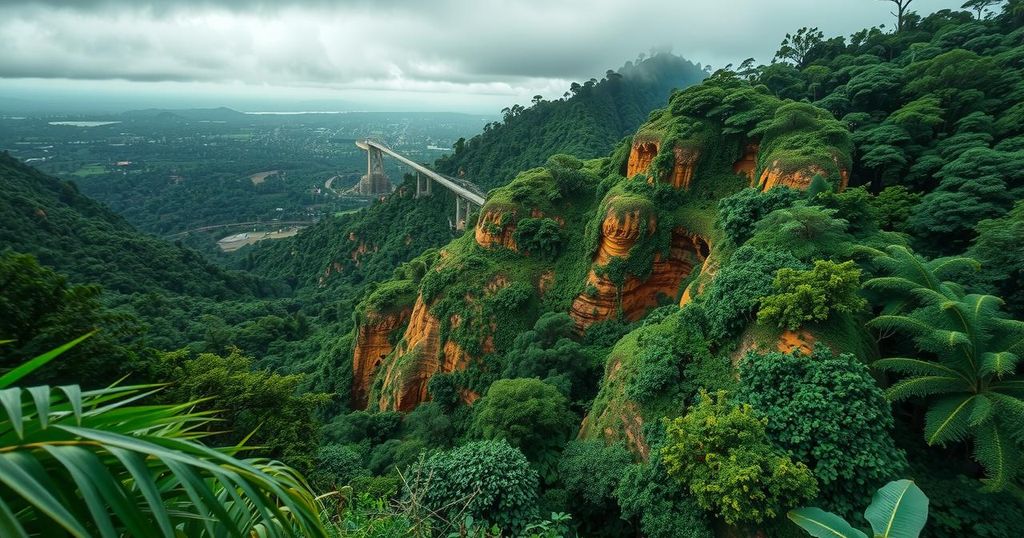Rwanda-backed M23 rebels have captured Walikale, a strategically important town in eastern Congo, despite calls for an immediate ceasefire from both Congolese and Rwandan leaders. The conflict heightens tensions in a region that is vital for mining, with escalating violence rendering the humanitarian conditions dire. Local leaders warn of the civilian toll as insurgent activities raise fears of further destabilization.
Rwanda-backed M23 rebels have captured the strategic town of Walikale in eastern Congo, escalating tensions amid recent calls for a ceasefire from both the Congolese and Rwandan presidents. This situation follows a series of advances by the M23 rebels, who have previously seized key locations, including Goma and Bukavu. Despite discussions in Qatar aimed at fostering peace, the rebels continue their aggressive tactics, citing self-defense against the Congolese army as their rationale for their actions.
The capture of Walikale has significant implications, as it provides the rebels control over major supply routes connecting several provinces, potentially hindering Congolese military operations. Reports indicate a decline in fighting intensity, with sporadic gunfire replacing heavy artillery exchanges. Local activists like Fiston Misona expressed concerns, suggesting that the Congolese army’s reluctance to engage reflects a greater prevailing crisis in the region.
In a statement, M23 and associated insurgents declared their efforts to protect civilians and accused the Congolese forces of indiscriminate attacks on populated areas. They claim that entering Walikale was necessary to safeguard the local population and their properties. Meanwhile, the region is crucial for mining, especially due to the presence of the Bisie tin mine, which has shut down operations amid the conflict.
With over 7 million individuals displaced by the ongoing violence, the situation in eastern Congo raises international concern. Congolese President Felix Tshisekedi highlighted the potential for collaborative agreements with the United States regarding security in exchange for access to essential minerals. The M23 group, supported by Rwandan troops, poses a threat not just locally but potentially extending toward the Congolese capital, Kinshasa. Additionally, a U.N. commission has been established to investigate human rights violations amid these clashes, further illustrating the region’s humanitarian crisis.
Recent reports from Doctors Without Borders indicate that their facilities in Walikale have suffered damage due to the violence, with fears of an influx of wounded individuals as the conflict continues to drive civilians from their homes.
The situation in Walikale underscores the fragile dynamics of eastern Congo, where armed conflicts perpetuate humanitarian crises and displace populations. Despite international appeals for a ceasefire, rebels persist in advancing territorial gains amidst allegations of atrocities and accusations against Congolese armed forces. The region’s importance as a mineral-rich area complicates the conflict further, implicating international interests and security concerns. The unfolding developments necessitate urgent attention and coordinated efforts to address the ongoing violence and protect civilian lives.
Original Source: www.mymotherlode.com






